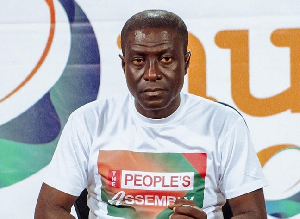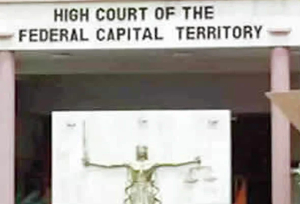2008 is indeed a year of new beginning. This year is truly a wakeup call to every society to do or start doing the positive things that have been unnecessarily ignored for so long a time. Fortunately for Ghana , we just celebrated our 50th birthday (the jubilee celebration). This means that Ghana has come of age, after passing through thin and thick circumstances for the past half a century. Undeniably, our dear Ghana is maturing in her social, economic and political life. Politically, our democratic and good governance systems keep on improving for the better, though there are a lot that need to be done. One of the things that Ghana , as a matter of urgency and law, needs to kick start is the promotion of the rights of detainees and prisoners, especially their right to vote in public elections and referenda. This will go a long way to give meaning to rule of law in this country. It has been held that the legitimacy of the law and the obligation to obey the law flow directly from the right of every citizen to vote. To deny prisoners the right to vote is to lose an important means of teaching them democratic values and social responsibility. Prisoners? right to vote is guaranteed in Canada , United Kingdom , Australia and so forth, with some reasonable and lawful limits.
WHY ARE THEY NOT VOTING?
The right of suspected criminals (remand prisoners, detainees) and prisoners to exercise their franchise in public elections has been ignored since time immemorial with no apparent reason and/or any legal justification whatsoever. Prisoners (including those on remand, awaiting trial) are unique and vulnerable group that have traditionally been ignored by society and government alike. They are considered as social outcasts and the stigma surrounding them cause individuals and the government to ignore their plight. Prisoners are considered less human by some members of our society. According to John Hirst, the loss of the right to vote has been seen as part of the punishment for committing a crime. According to Lord Firking, ?it has been the view of successive governments (in UK )?that persons who have committed crimes serious enough to warrant a custodial sentence should forfeit the right to have a say in how the country is governed while they are detained.? That ?for many years it has been part of our society?s tradition that, when people are imprisoned, they lose a range of rights, one of which is the right to participate in elections.? In the United States for example, ?persons convicted of an ??infamous crime?? are disenfranchised. This provision applied, not only to those serving sentences, but to those who had completed their sentences and been released.
It has been the view of many people that the restriction on the right to vote is aimed at preventing crime, punishing offenders and enhancing civil responsibility and respect for the law. According to some writers, the denial of civil rights to convicted felons has ancient origin. It is a product of the idea that the commission of an offence divests a person of property and legal rights. Those felons who did not suffer death by execution would nevertheless suffer ?civil death?. This kind of ?death sentence? (disenfranchisement) continues to operate in some countries where even capital punishment has been abolished. In those countries, ?civil death? is considered as the consequence of a conviction of a crime, normally of serious nature.
WHY DETAINEES AND PRISONERS SHOULD VOTE
Those supporting the removal of all forms of restrictions on prisoners voting are of the view that giving prisoners the right to vote helps their rehabilitation and keeps them in touch with society and their role as citizens within the wider community. The European Court of Human Rights has said that ?removal of the (right to) vote?runs counter to the rehabilitation of the offender as a law-abiding member of the community and undermines the authority of the law as derived from a legislature which the community as a whole votes into power.? Besides, it has been said that there is no evidence that disenfranchisement helps to prevent crime.
The argument that prisoner disenfranchisement can ?enhance civil responsibility and respect for the rule of law? has been rejected in Canada and Europe in Sauve v Chief Electoral Officer of Canada and Hirst v UK respectively, both of the relevant courts noting that the provisions undermine respect for rule of law by detracting from the legitimacy of the legislature from which they emanate. According to some writers, where prisoners have the franchise, their fate is sanctioned by a political process in which they continue to play a part. That that is a situation more likely to inspire respect than one that separates the prisoner from political society.
According to John Hirst, if prisoners were also voters, politicians would seek out their views when canvassing for votes. ?What this will do is (to) force them knocking on people?s door inside ? knocking on cell doors, asking them what they think, offering them incentives or privileges to try to get their vote. What you have got there is actually a mini community ? behind prison walls, the same as outside it?s smaller ? it?s a microcosm of it. So politics is very big thing in prison,? he added.
THE 1992 CONSTITUTION OF GHANA
THE RIGHT TO VOTE
Article 42 provides that every citizen of Ghana of eighteen years of age or above and of sound mind has the right to vote and is entitled to be registered as a voter for the purposes of public elections and referenda.
Therefore, the basic qualification that an individual has to satisfy to be able to vote in public elections and referenda are: (a) one must be a citizen of Ghana ; (b) he must be eighteen years of age or more and (c) she must be of sound mind (not law abiding-citizens). The phrase every citizen undeniably embraces both law-abiding and non law-abiding citizens alike. It is therefore not out of place to point out that tradition, peoples? view and sentiments should by no means be the very basis of denying prisoners their right to vote. The only reasonable grounds (exceptions) to exclude prisoners the right to vote should be:
1) The ability to make an informed and rational choice. This factor will enable us to determine what level of maturity or soundness of mind a person must possess in order to be able to make a political choice.
2) Making citizenship a requirement to vote. This denotes a sufficient affiliation to a country to vote, such as naturalised persons or permanent residents. It has been argued that this criterion might also allow the exclusion of persons who have demonstrated by certain conduct-such as treason- that they have rejected their affiliation with the (Ghanaian) political community, hence warrant exclusion from the franchise. However, it still remains unclear whether this criterion allows the exclusion of citizens of ( Ghana ) merely because of their status as inmates of correctional facilities. According to Jerome Davidson, to serve a term of imprisonment does not equate to a rejection of the political community.
THE DIGNITY OF A PERSON
Article 15 has it that:
(1) The dignity of all persons shall be inviolable
(2) No persons shall, whether or not he is arrested, restricted or detained, be subject to-
a) Torture or other cruel, inhuman or degrading treatment or punishment;
b) Any other condition that detracts or is likely to detract from his dignity and worth as a human being.
(3) A person who has not been convicted of a criminal offence shall not be treated as a convicted person and shall be kept separately from convicted persons.
According to Article 19(2) (c), a person charged with a criminal offence shall be presumed to be innocent until he is proved or has pleaded guilty. In my candid opinion, to deprive detainees and prisoners of their right to vote, without any legal justification, is a blatant breach of the above provisions. Besides, to consider prisoners as less human beings who should not be allowed to have a say in how their country should be governed is clearly an inhuman preposition which undeniably detract from (them) their dignity and worth as human beings. The brutal nature of the preposition is made clearer when we objectively consider the case of detainees. Detainees are in most cases people who are suspected of committing crime. As stated above, such persons are to be presumed innocent until the final determination of their trial. Therefore, to ?punish? detainees by depriving them the right to vote is highly unconstitutional, cruel and inhuman.
Additionally, we should have in mind that nothing is a crime unless a statute, which is not inconsistent with any constitutional provision, states so. There is no statute, as far as I know, that prescribe disenfranchisement as an additional punishment for prisoners and detainees in Ghana . It goes without saying that any tradition or view, however hallowed, must bow to the clear provisions in our constitution. In 1998 the Joint Standing Committee on Electoral Matters (JSCEM), in Australia , stated that (though reversed its position in 2000 on the basis that public support was lacking) ?an offender once punished under the law should not incur the additional penalty of loss of the franchise. We also note that a principal aim of the modern criminal law is to rehabilitate and orient them positively toward the society they will re-enter on their release. We consider that this process is assisted by a policy of encouraging offenders to observe their civil and political obligations.? The United Nations Human Rights Committee (UNHRC) has commented that to deny convicted prisoners the right to vote ?amounts to an additional punishment and does not contribute towards the prisoners? reformation and social rehabilitation, contrary to article 10, paragraph 3, in conjunction with article 25 of the covenant (ICCPR). The state party should reconsider its law depriving convicted prisoners of the right to vote.? Interestingly, Ghana being a party to the International Covenant on Civil and Political Rights (ICCPR) is not even having any law which says that convicted prisoners and detainees may not exercise their right to vote, yet they are disenfranchised in the name of tradition and social sentiment. Article 10(3) of the ICCPR is to the effect that prisoners should be treated with the aim which shall be their reformation and social rehabilitation. This means that rehabilitation should be placed above deterrence.
CONCLUSION
As has been aptly expressed by Justice Nagle, ?a citizen?s right to vote should depend only on his ability to make a rational choice. Loss of voting rights is an archaic leftover from the concepts of ?attainder? and ?civiliter mortuus?, and has no place within a penal system whose policies aim to encourage the prisoner?s identification with, rather than his alienation from, the community at large. All prisoners should be entitled to vote?Necessary facilities should be provided for them to exercise their franchise.? We should begin with the 2008 elections.















